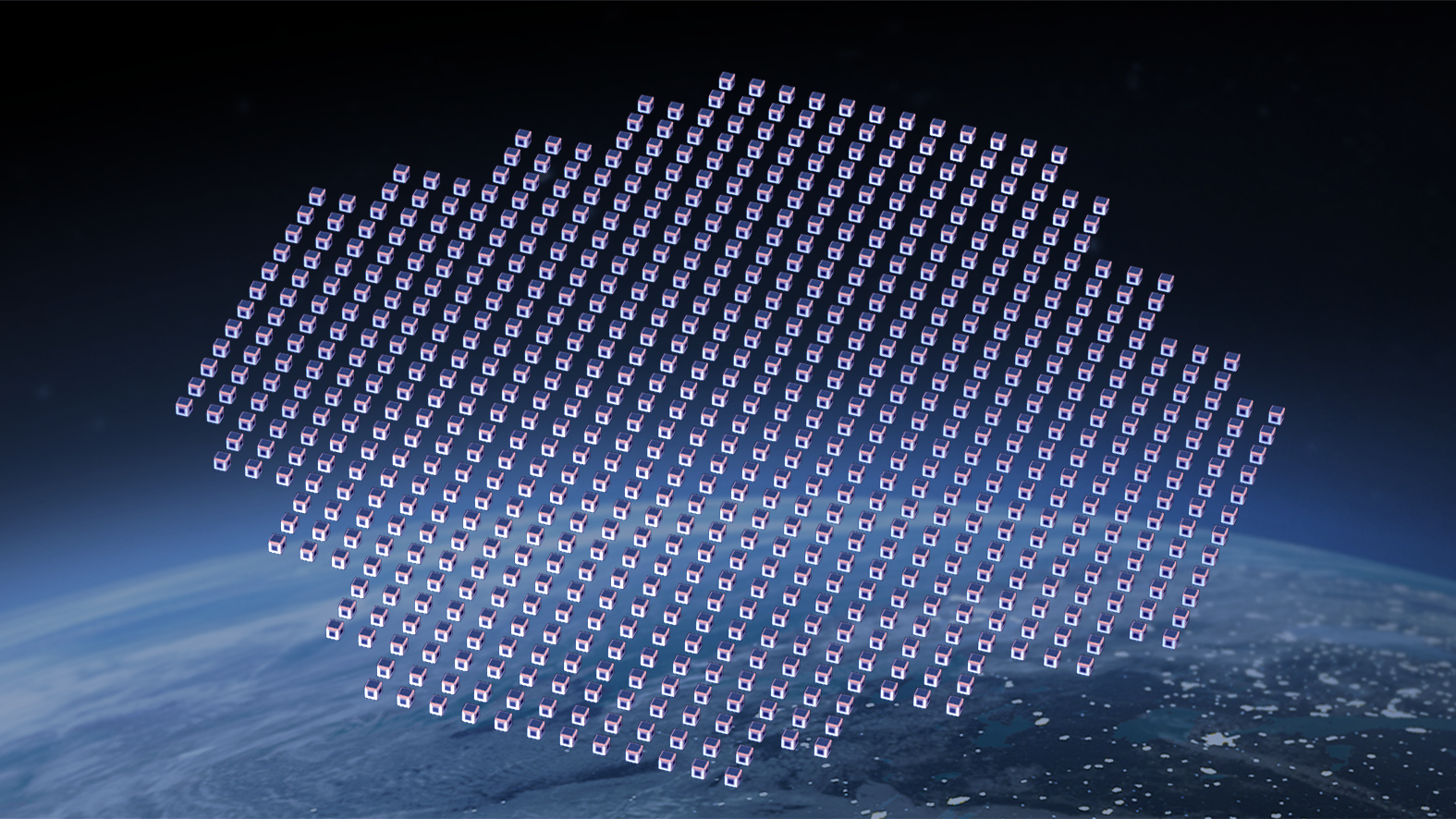DATE
Interstellar Technologies Begins Research on Formation Flying Satellite Communications: Commissioned by Ministry to Connect Terrestrial Terminals with Space Networks
CATEGORY
TAG

Hokkaido, Japan – Interstellar Technologies Inc. (“Interstellar”), a leading space infrastructure company dedicated to addressing global challenges through space transportation and utilization, is pleased to announce its selection for the “Expanding Wireless Communication Spectrum Research Project” commissioned by the Ministry of Internal Affairs and Communications for fiscal 2024. This project, conducted in collaboration with five national universities—Iwate University, Osaka University, Tokyo Institute of Technology, Nara Institute of Science and Technology, and Niigata University—aims to advance satellite development and enhance vertical integration in the rocket industry.
Joint Research with Leading Japanese Universities
The research theme is “Narrow Multi-Beam Formation Technology for Frequency Sharing between Low Earth Orbit Satellites and Ground Terminals,” with a first-year budget of 2.7 billion yen and a three-year duration (*1). High-speed satellite communication has recently emerged as a viable alternative in areas lacking terrestrial infrastructure, led by SpaceX’s Starlink system, which deploys numerous low Earth orbit satellites operating as a ‘satellite constellation.’ Globally, there are plans to develop next-generation satellite communications that connect directly to smartphones and other ground terminals without dedicated antennas.
This research aims to establish core technologies in wireless systems and inter-satellite information processing to enable multiple femto-satellites to operate in formation flying, functioning as a large-scale antenna. This approach will achieve speeds and capacities comparable to terrestrial networks, supporting numerous simultaneous connections and efficiently utilizing limited radio resources. The goal is to realize Interstellar’s vision of ‘Satellite Communication 3.0.’
*1 Source: Ministry of Internal Affairs and Communications: https://www.soumu.go.jp/menu_news/s-news/01kiban09_02000513.html
Institutional Comments:
Takahiro Inagawa, Chief Executive Officer of Interstellar Technologies Inc.
The satellite communication market is poised for significant growth, presenting an ideal opportunity to leverage our strengths in rocketry. We are grateful for the collaboration with experts and the opportunity to develop next-generation satellite communication technologies. Our innovative approach of constructing antennas through formation flying has garnered positive feedback. At Interstellar, we are committed to enhancing Japan’s leadership in the communication sector through our dedicated efforts.
Naoki Honma, Professor of Iwate University
I am honored to take part in this technologically advanced and challenging project focusing on satellite antennas to achieve frequency sharing. I hope to contribute from the viewpoint of antenna and signal processing during the research and development phase.
Hirozumi Yamaguchi, Professor of Osaka University
I am delighted to be part of a technological development project set to shape the foundation of future space communications. With the goal of a world where everyone and everything on Earth is seamlessly connected, I will dedicate my efforts to explore various facets related to information and communication technology and computer science.
Atsushi Shirane, Associate Professor of Tokyo Institute of Technology
I am delighted to participate in such a challenging project. I will give my utmost effort to make contributions in implementing integrated circuits for lightweight satellite wireless transceivers, to achieve weight reduction and cost-efficiency.
Keiichi Yasumoto, Professor of Nara Institute of Science and Technology
I feel very pleased to join this project. Although it presents a very challenging task, I firmly believe that the impact when realized would be immeasurable. I will put forth my utmost efforts from the perspective of computer science to solve this challenge.
Minoru Okada, Professor of Nara Institute of Science and Technology
It is an honor to be part of this project, and I am deeply committed to its success. The project, which aims to establish next-generation mobile communication through satellite constellations, is a significant endeavor. With my expertise in wireless signal processing, I am determined to confront the challenges head-on and contribute to its success.
Minsok Kim, Associate Professor of Niigata University
I am thrilled to undertake this impactful challenge of connecting mobile phones to space. While there are numerous technical hurdles, I believe we can overcome them one by one, drawing upon the collective wisdom of all those involved.

